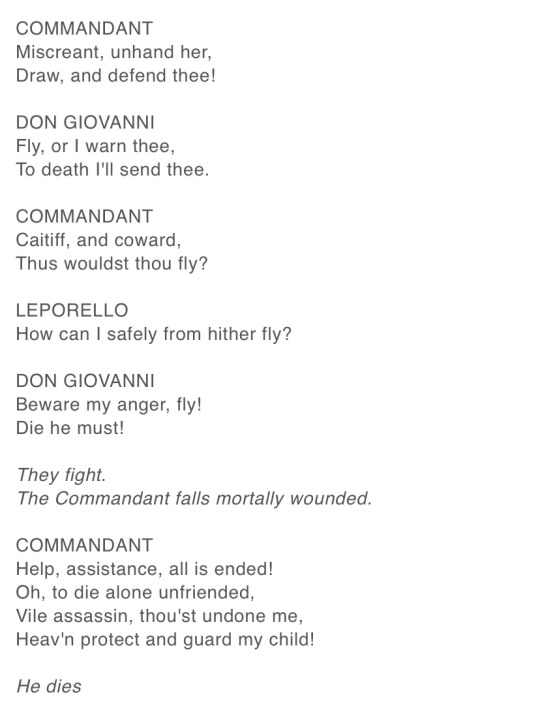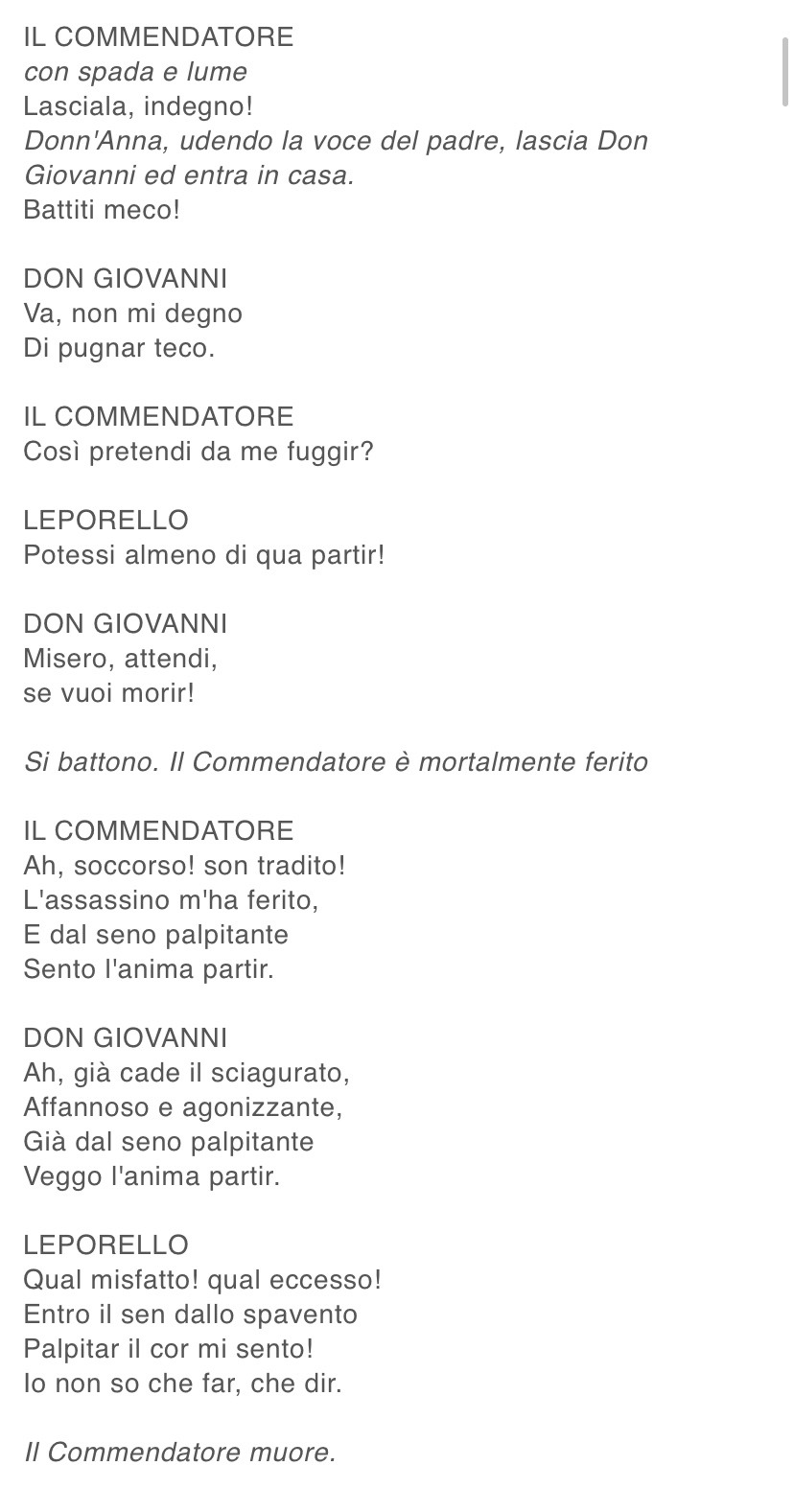#how did i even shift from das veilchen to don giovanni😭 i hope you don’t mind the shift🥺
Explore tagged Tumblr posts
Note
I’m so happy you liked it😭❤️ Her voice is so beautiful oh my God, it’s gonna make me sob-
And yes! I honestly love that with Mozart, when he’s composing something with lyrics he always makes sure the melody and the overall vibe matches what’s being spoken of. And this fact makes him an immaculate opera composer😩
In his letters or biography, I have a vague memory of reading a sentence along the lines of:
I compose symphonies/concertos for a living, and lieds to amuse my friends, but I am, to the core, an opera composer.
But this is to be taken with a grain of salt since I’m not in my hometown and I didn’t take his biography with me here so I’m writing this from memory😔
For example, at the beginning of his beautiful opera Don Giovanni (I could go on for MONTHS on the importance of this opera for Mozart and for me too, the brainrot hasn’t faded away even after years- but I won’t overwhelm this ask with that rn🥲), <spoilers for the opera> tw rape! Don Giovanni tries to take advantage of Donna Anna and her father comes in at the right time. tw end Il Commendatore (her father) and Don Giovanni start sword-fighting and Mozart even puts some sharp rhythms which symbolise the clashing swords, hinting that the choreography of the fight scene must be arranged so. And the moment Don Giovanni stabs him, the melody comes to an end with a strong 7th chord (which are usually known for their dramatic effects), I just love the intensity of that scene ugh. And after that, the intensity leaves its place to serenity, as Il Commendatore passes away, he mutters his final words and even though one doesn’t know Italian you can just tell what’s happening thanks to Mozart’s genius musical story-telling.
If anyone is interested, here’s my favourite interpretation of the scene <3 Her father comes in at 10.13 (the entrance music is extremely intense too ahh), they start sword-fighting at 11.02 (this is my favourite version because I think it’s the only one that listens to what Mozart wants and makes the actors clash their swords following the rhythm of the music😖❤️) and Il Commendatore gets stabbed at 11.16 (the chord. THE CHORD. I’m swooning-). Then the mood changes, starting with his “Ah… soccorso… (Ah, help)” (the softness of that ‘Ah’ has me everytime😖) and he slowly passes away until 12.42… ahh, I’m returning to my Don Giovanni brainrot it seems😖
I’ll put the libretto of that scene too in case you’re interested in the lyrics!


The casually written “He dies” is sending me-
I’m going SO off-topic here but it’s said that Beethoven’s famous Moonlight Sonata’s first movement was inspired by Il Commendatore’s death scene and I can totally see that, if you pay attention to the strings’ rhythm in the background while he’s dying (starting from 11.18) it’s totally the same with the main rhythm (just the few first seconds should suffice to do the comparison) of the Moonlight Sonata! Which would mean that Beethoven didn’t have moon nor light in mind while composing that peaceful movement.
It’s a funeral march.
I was stunned, my jaw dropped so bad when I first read that theory, I’m still shivering over it- BUT ANYWAYS😭 Oh God I’m so sorry I was so carried away- In conclusion, this is a beautiful lied which conveys the emotions of the lyrics through the beautiful music indeed :’)
And I love that Mozart actually added the last two lines “Das arme Veilchen/Es war ein herzigs Veilchen!” at the end of Goethe’s original poem, the poem normally doesn’t have that but Mozart added it in order to make a beautiful conclusion🥺 I’m always so soft when the poem finishes and the pianist plays the broken chord at 02.28😭❤️ I’M ALWAYS SO SOFT NO MATTER WHICH PART IT IS
And the poem is honestly so beautiful. I’m unfortunately not familiar with German poetry and am so sad because I can’t read it in its original language but even the translation tugs at my heart strings😭❤️
I should thank YOU for putting up with sharing my brainrot… You can’t guess how much it means to me🥺💕
I also wanted to share a 3-minute lied (which literally means song written in German) since we talked about lyrics and melody a lot hehe. It’s Das Veilchen (The Violet), and it has one of the most beautiful melodies I’ve ever heard in my whole life. Its lyrics are taken from Goethe’s poem with the same name. It’s a really beautiful and romantic poem about an aloof shepherdess who crushes a young man’s heart as if it was a fragile violet, I honestly love that symbolisation. I thought you’d like it😌💜
Mozart composed this lied on my birthday so I always tend to think of it and listen to it as a birthday present each year haha
Req!! Thank you so much for the recommendation😭 I just listened to it and am completely in awe with the soprano, her voice is heavenly, I'm in love😭. Her voice is so clear yet so soft (and now that I've read the lyrics it goes so well with conveying the fragileness of the violet).
And now listening to the music as I read the lyrics, I could hear the sense of longing in her voice, especially when it reached the second stanza where you could hear the minor notes being played.
And I actually quite enjoyed the poem as well! It is quite tragic😭 but really conveys the deep sense of longing one would have for someone whom they love. And I do love the symbolism! I really liked both the poem and the music so very much, thank you <3
And omg really? That’s so cool!😫
#Kat🦋#don giovanni… ahh#sobs in the corner#i would’ve loved to be able to hold mozart in my arms and just comfort him over… things#over everything he projected onto this opera#he suffered way too much and it’s making me so sad to find its subtle reflections on his music#🥺#how did i even shift from das veilchen to don giovanni😭 i hope you don’t mind the shift🥺#req’s mozart brainrot#req’s classical music brainrot#req has many brainrots nowadays and her brain is malfunctioning
15 notes
·
View notes